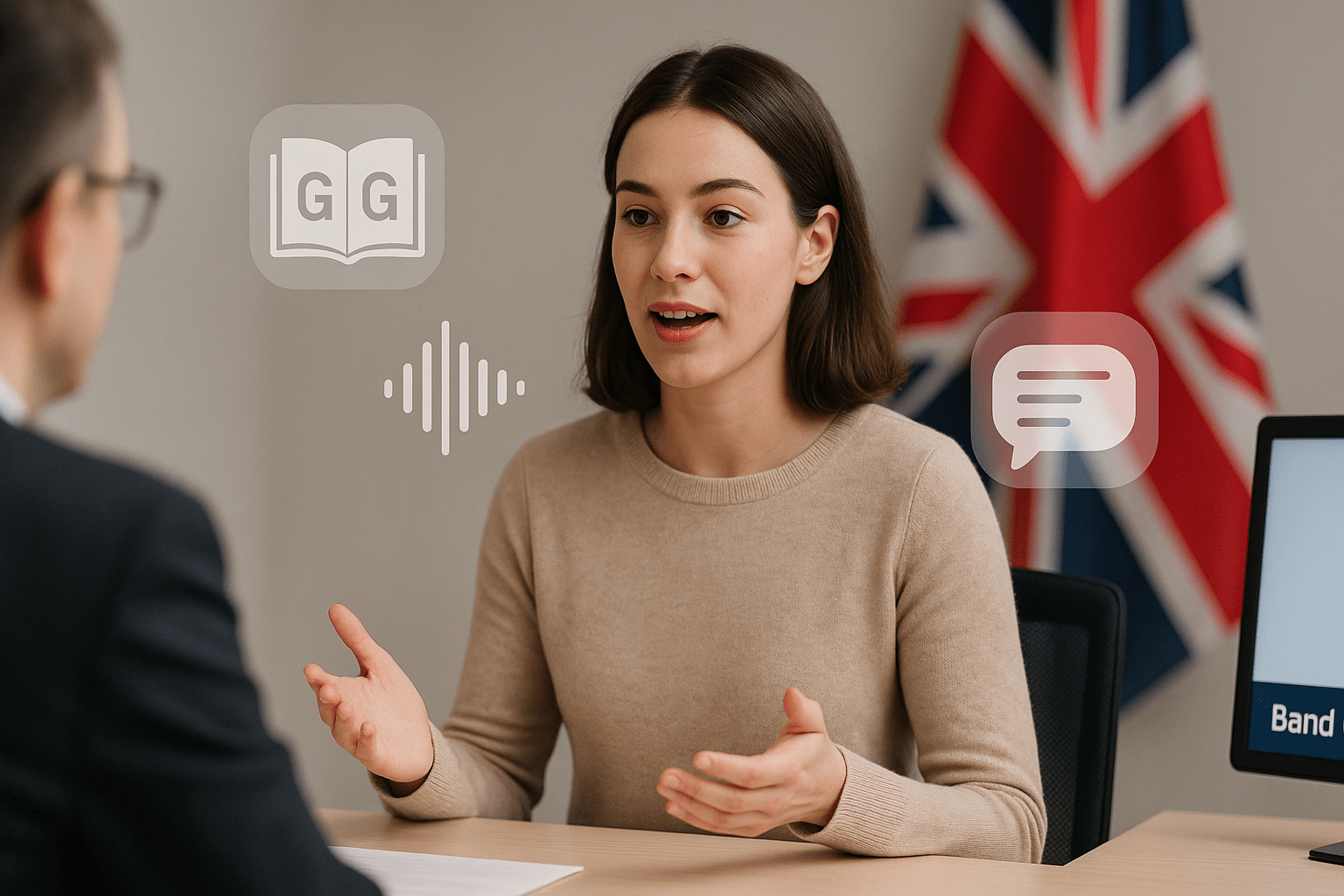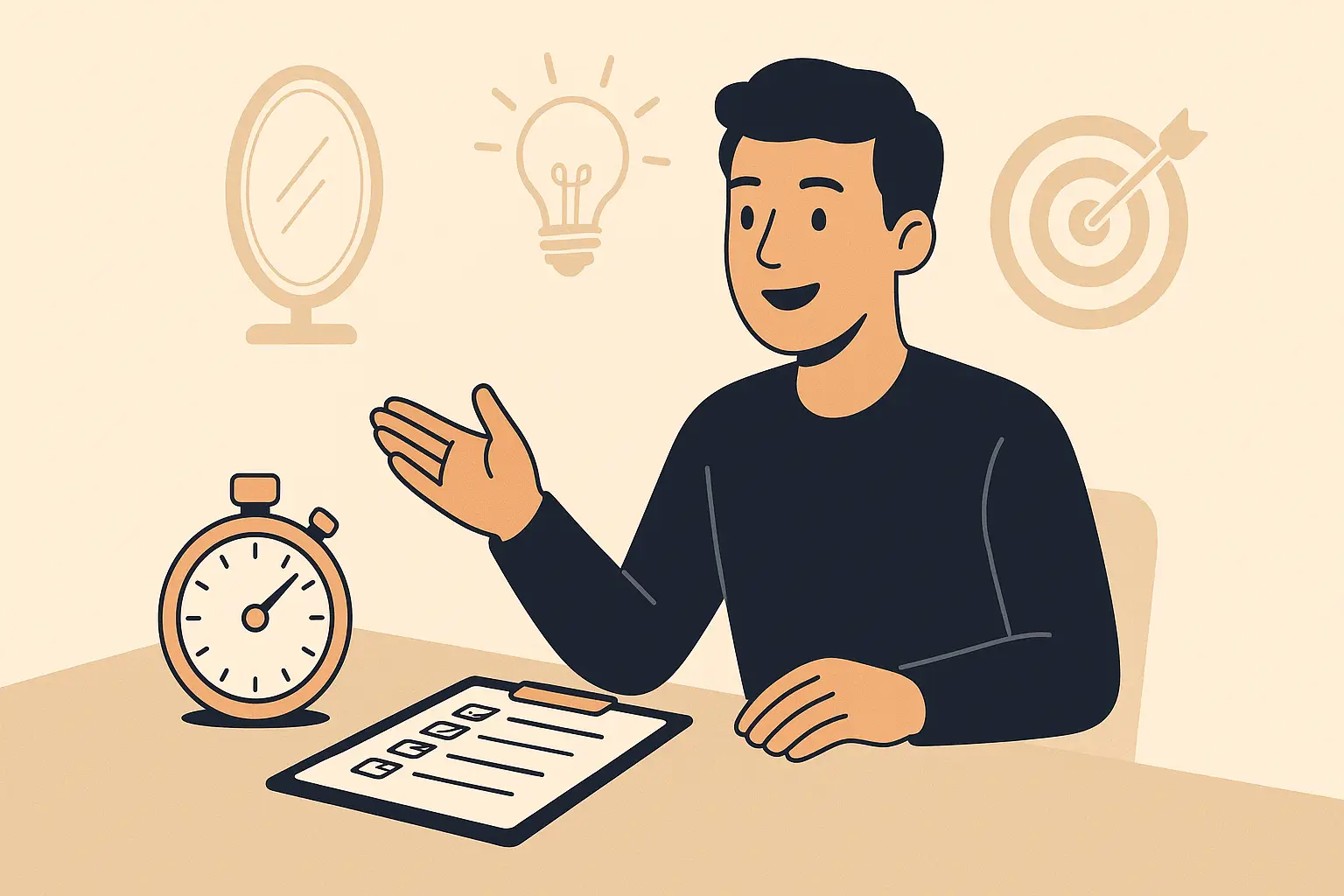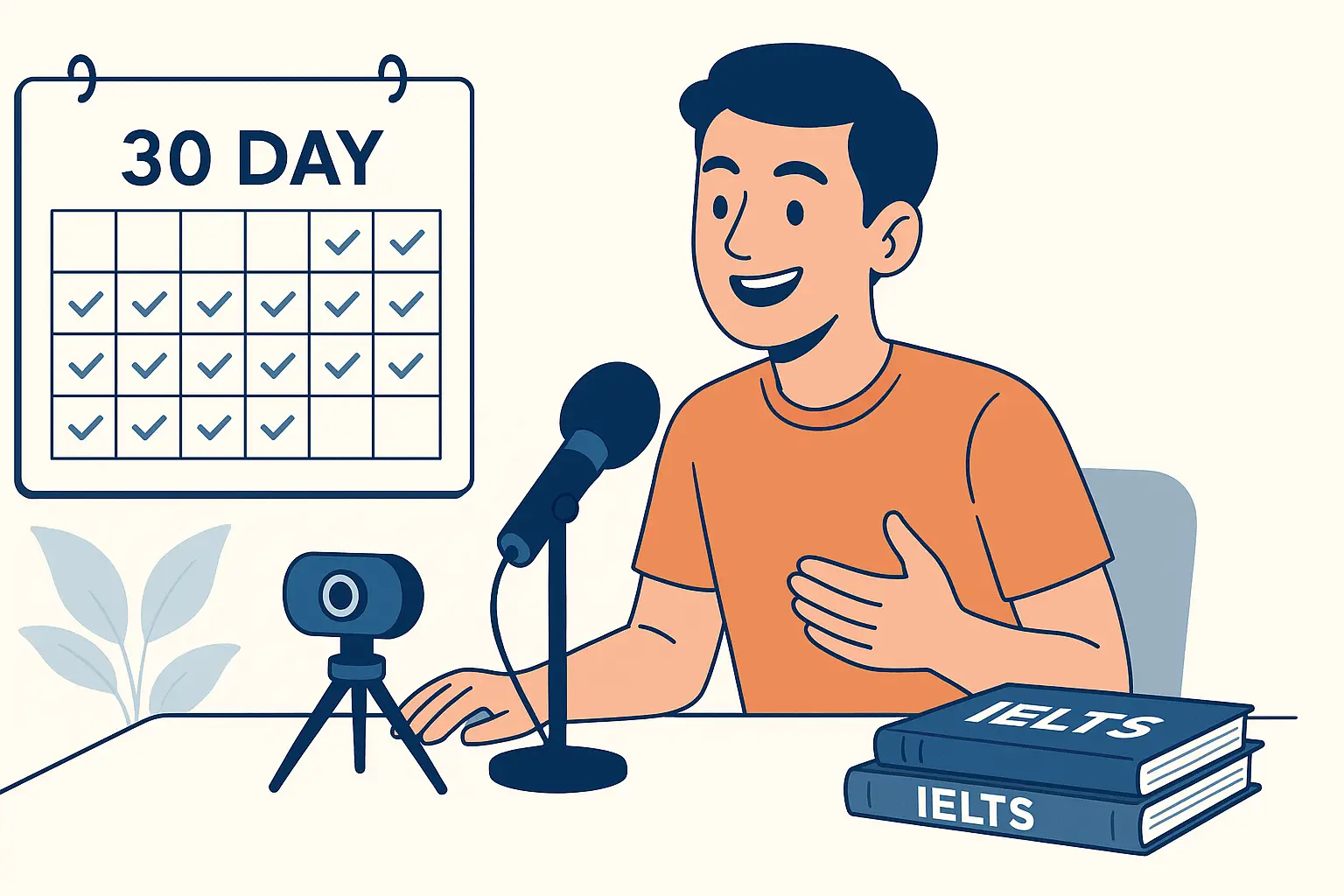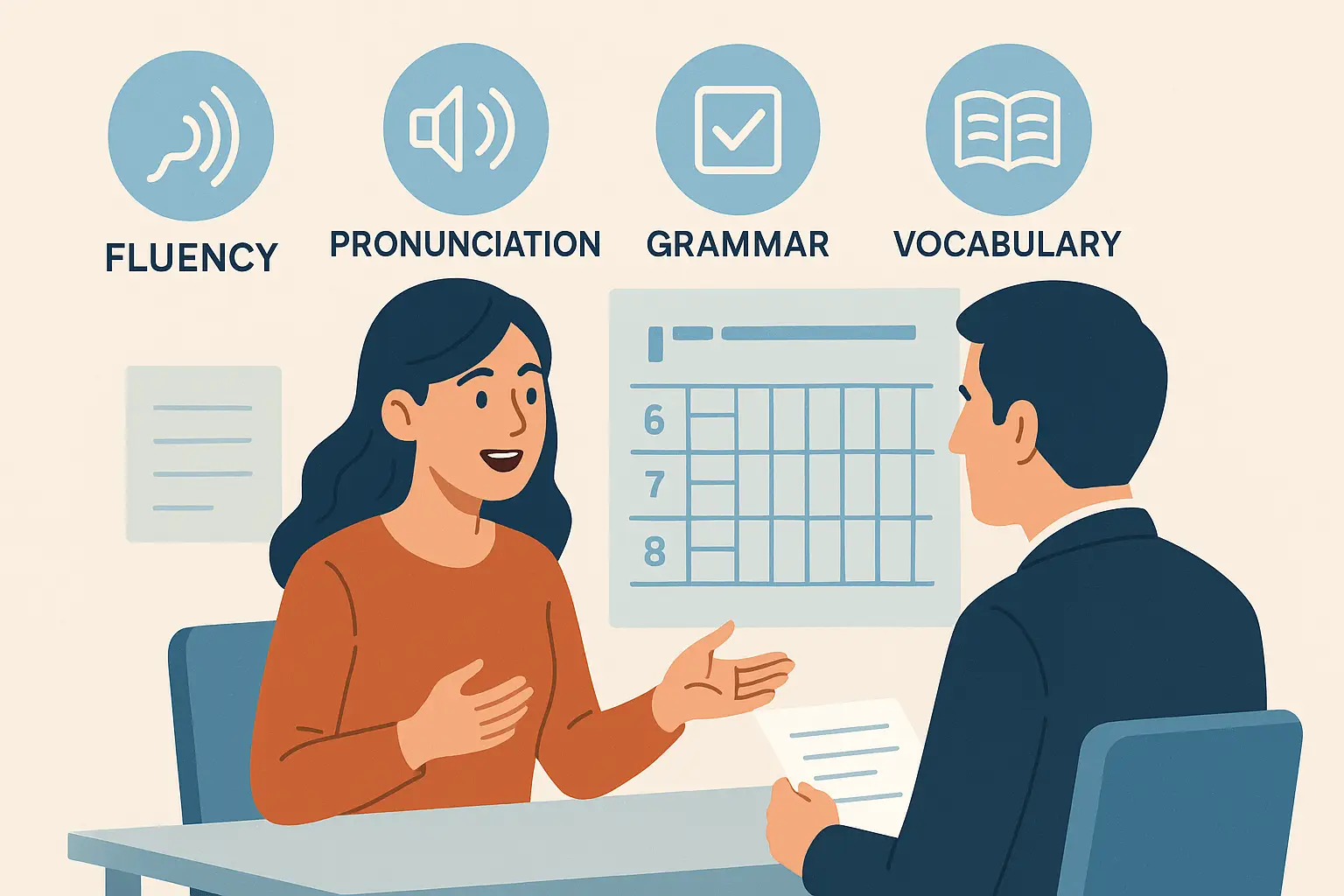- Why Grammar, Pronunciation & Fluency Matter in IELTS Speaking
- Fluency: What It Really Means and How to Develop It
- Grammar: Avoiding Common Mistakes Without Sounding Robotic
- Pronunciation: It’s Not About Having a British or American Accent
- Combining the Three: Real Speaking Practice That Works
- FAQs about Grammar, Pronunciation & Fluency in IELTS Speaking
- You Can Do This — One Step at a Time
As an international IELTS teacher who’s helped hundreds of students from around the world, I can confidently say this: if you want to boost your IELTS Speaking score, you must master grammar, pronunciation & fluency together. These three elements are the backbone of natural, effective communication — and the IELTS examiner will be listening for them in every word you say.
In this guide, I’ll walk you through what these three key areas mean, why they matter for your band score, and how to improve them — with real student stories, practical tips, and direct links to detailed help where needed.
Why Grammar, Pronunciation & Fluency Matter in IELTS Speaking
Let’s start with the basics. The IELTS Speaking test is scored on four criteria:
- Fluency and Coherence
- Lexical Resource (Vocabulary)
- Grammatical Range and Accuracy
- Pronunciation
Three of those four — grammar, pronunciation & fluency — are what I call the “core skill trio.” You can have great ideas, but if you hesitate, stumble over your words, or use awkward grammar, your score will suffer. I’ve seen it happen with even the most confident students.
And don’t worry — it’s fixable. Let’s break down each skill and how to improve it.
Fluency: What It Really Means and How to Develop It
Many students think fluency means speaking quickly. That’s a myth. Fluency is about speaking smoothly, clearly, and without unnatural pauses. You don’t have to speak fast — just confidently and coherently.
One of my students from Vietnam, Linh, had great vocabulary but paused after every sentence. She was worried about making mistakes. I helped her use linking words and fillers to keep the flow going naturally. You can learn the same technique in this post on linking words and fillers.
Another tip: extend your answers. If the examiner asks, “What’s your favourite hobby?”, don’t just say, “I like painting.” Add details, reasons, or examples. I show how to do that in this post on extending your answers.
🎯 Quick fix: Record yourself answering IELTS questions and time your responses. Aim to speak for 30–40 seconds without repeating or hesitating.
Grammar: Avoiding Common Mistakes Without Sounding Robotic
IELTS examiners care about both grammatical range (using different structures) and grammatical accuracy (getting them right). But students often over-focus on accuracy and become too nervous to speak.
One of my Italian students, Marco, used perfect tenses… but only the present simple in every answer. His band was stuck at 6. We worked together to add conditionals, comparatives, and passive forms — which I’ve outlined in this grammar mistakes guide.
Start with small changes:
- Use past tense for past events: “I visited Paris last year.”
- Use modals for opinions: “I think people should eat healthier.”
- Try conditionals: “If I had more free time, I’d learn Spanish.”
🎯 Quick fix: Choose 3 IELTS Speaking topics and write out model answers using different grammar forms. Practise saying them aloud.
Pronunciation: It’s Not About Having a British or American Accent
One of the biggest myths in IELTS is that you need a “native accent” to get Band 8+. That’s false. I’ve helped students from Bangladesh, Brazil, and Japan reach Band 8+ with their own accents — because pronunciation is about clarity, not accent.
The key areas the examiner listens for:
- Word stress (saying “pho-TOG-ra-phy” instead of “pho-to-gra-PHY”)
- Sentence stress (emphasising important words)
- Intonation (your voice rising and falling naturally)
- Connected speech (linking words, reducing sounds)
My student Sara struggled with intonation — every sentence sounded flat. We practised using pitch variation through dialogues and emotional responses. If that sounds like you, this intonation and word stress guide will help.
Another challenge is mispronouncing key words. You don’t want to say “beach” as “bitch” — yes, that happens, and yes, examiners notice.
🎯 Quick fix: Use free tools like YouGlish to hear how native speakers pronounce IELTS vocabulary.
Combining the Three: Real Speaking Practice That Works
Grammar, pronunciation & fluency aren’t separate skills. They work together, and that’s how you should practise them.
Here’s what I recommend:
- Record answers to questions from all three parts of the Speaking test
- Watch the playback and focus on:
- Did you hesitate or use fillers naturally?
- Did you vary sentence structures?
- Were your words clearly pronounced and stressed?
- Fix one area at a time, then re-record
Need a full Speaking strategy? I outline the entire process in this complete guide to IELTS Speaking.
FAQs about Grammar, Pronunciation & Fluency in IELTS Speaking
1. Do I need perfect grammar to score Band 8+?
No. Examiners look for a range of structures and mostly accurate grammar. Occasional mistakes are okay if your meaning is clear and your speech is natural.
2. Will my accent lower my score?
Absolutely not — as long as your speech is clear and understandable. Focus on pronunciation features like stress, rhythm, and intonation instead of trying to sound British or American.
3. What if I pause a lot during the test?
That affects your fluency score. Learn to use fillers, practice under timed conditions, and work on extending your answers to build flow.
4. Can I prepare without a speaking partner?
Yes. Use recordings, online forums, and AI tools like IELTS.org resources or even British Council’s sample test videos to guide your practice.
5. How do I know if my pronunciation is improving?
Track your speaking over time — record your responses weekly, and compare. Ask teachers or peers for feedback, or use pronunciation tools like IELTS IDP Speaking resources.
You Can Do This — One Step at a Time
I’ve seen students who struggled with grammar, stumbled through words, or spoke with heavy accents transform into confident speakers. Why? Because they focused consistently on these core skills: grammar, pronunciation & fluency.
Start small. Choose one skill to work on this week. Use the guides I’ve linked above to dig deeper into the area you need most. And remember, speaking naturally and confidently is a skill — one you absolutely can master.
If you’re serious about improving, revisit this complete IELTS Speaking strategy and use it as your roadmap.
I’m cheering for you — now go practise out loud!






One Response